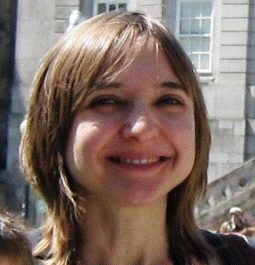In 2024/2025, applications will be invited for the following areas of specialisation: Linguistic Revision and Consultancy, Linguistics, and Terminology and Computational Lexicography. See the curriculum structure here.
Presentation
The general objective of the Master's Degree in Language Sciences is to provide the development of specialised knowledge and skills in different fields of language sciences, contributing to the training of professionals and researchers qualified to intervene in activities related to language and its various uses.
Objectives
- To systematise fundamental concepts for linguistic description and analysis;
- To learn about different linguistic theories and critically evaluate their suitability for the framework of work to be developed in different subareas;
- To select methodologies of data collection and processing, in accordance with different goals and different tasks to be developed, and in articulation with different theoretical frameworks;
- To apply theoretical knowledge and respective methodologies in the development of research into different languages and the execution of various types of activities in fields such as language development and language impairment; language consultancy and revision, terminology and computational lexicography within the area of specialization;
- To identify problems and define strategies for their resolution using appropriate instruments and tools.
- To prepare an original piece of work leading to the degree of Master.
Areas Of expertise
- Language Development and Language Impairment
- Linguistics
- Linguistic Revision and Consultancy
- Terminology and Computer Lexicography
Curricular structure
Duration: 3 semesters Total credits: 90 ECTS (60 in curricular units + 30 in the non-taught component)
Modalities of non-taught component: Dissertation, Project Work or Practical Work Experience with Report
Number of credits on a free-choice basis: Students may complete credits in a free-choice regime, according to the syllabus of the specialization in which they are enrolled. These options may be taken in post-graduate level curricular units at FCSH, UNL, or other national or foreign higher education institutions, by means of a protocol.
The Master’s degree corresponds to Level 7 of the NQF and EQF - National Qualifications Framework/European Qualifications Framework.
Course Structure per areas of expertise
| Curricular units | Semester | ECTS | Observations |
| Norm and Variation | 1st | 10 | Mandatory |
| Text Functioning | 1st | 10 | Mandatory |
| Morphology | 1st | 5 | Elective options 1 to 2 (the students takes 2 CU from this set) |
| Syntax | 1st | 5 | Elective options 1 to 2 (the students takes 2 CU from this set) |
| Semantics | 1st | 5 | Elective options 1 to 2 (the students takes 2 CU from this set) |
| Lexicology | 1st | 5 | Elective options 1 to 2 (the students takes 2 CU from this set) |
| Instruments of Linguistic Normalization | 1st | 5 | Mandatory |
| Theories and Practices of Writing | 1st | 5 | Mandatory |
| Topics in Morphology | 1st | 5 | Elective option 3 (the students takes 1 CU from this set) |
| Topics in Syntax | 2nd | 5 | Elective option 3 (the students takes 1 CU from this set) |
| Topics in Semantics | 2nd | 5 | Elective option 3 (the students takes 1 CU from this set) |
| Free option | 2nd | 10 | Free choice in any master’s course at NOVA FCSH |
| Dissertation/Internship with Report/Project | 3rd | 30 | Elective option 4 |
| Curricular units | Semester | ECTS | Observations |
| Phonology | 1st | 5 | Elective options 1 to 4 (the students takes 4 CU from this set) |
| Morphology | 1st | 5 | Elective options 1 to 4 (the students takes 4 CU from this set) |
| Syntax | 1st | 5 | Elective options 1 to 4 (the students takes 4 CU from this set) |
| Lexicology | 1st | 5 | Elective options 1 to 4 (the students takes 4 CU from this set) |
| Text Functioning | 1st | 10 | Mandatory |
| Topics in Phonology | 1st | 5 | Elective options 5 to 6 (the students takes 2 CU from this set) |
| Topics in Morphology | 2nd | 5 | Elective options 5 to 6 (the students takes 2 CU from this set) |
| Topics in Semantics | 2nd | 5 | Elective options 5 to 6 (the students takes 2 CU from this set) |
| Historical Linguistics | 2nd | 10 | Elective options 5 to 6 (the students takes 2 CU from this set) |
| Free option | 2nd | 10 | Free choice in any master’s course at NOVA FCSH |
| Dissertation/Internship with Report/Project | 3rd | 30 | Elective option 7 |
| Curricular units | Semester | ECTS | Observations |
| Phonology | 1st | 5 | Elective options 1 to 2 (the students takes 2 CU from this set) |
| Morphology | 1st | 5 | Elective options 1 to 2 (the students takes 2 CU from this set) |
| Syntax | 1st | 5 | Elective options 1 to 2 (the students takes 2 CU from this set) |
| Semantics | 1st | 5 | Elective options 1 to 2 (the students takes 2 CU from this set) |
| Lexicology | 1st | 5 | Mandatory |
| Lexicography | 1st | 10 | Mandatory |
| Theories in Terminology | 1st | 10 | Mandatory |
| Computational Linguistics | 2nd | 10 | Mandatory |
| Terminology and Ontologies | 2nd | 10 | Mandatory |
| Free option | 2nd | 10 | Free choice in any master’s course at NOVA FCSH |
| Dissertation/Internship with Report/Project | 3rd | 30 | Elective option 3 |
| Curricular units | Semester | ECTS | Observations |
| Phonology | 1st | 5 | Elective options 1 to 3 (the students takes 3 CU from this set) |
| Morphology | 1st | 5 | Elective options 1 to 3 (the students takes 3 CU from this set) |
| Syntax | 1st | 5 | Elective options 1 to 3 (the students takes 3 CU from this set) |
| Semantics | 1st | 5 | Elective options 1 to 3 (the students takes 3 CU from this set) |
| Language Acquisition and Language Impairment (Syntax and Semantics) | 1st | 5 | Mandatory |
| Language Acquisition and Language Impairment (Phonology and Morphology) | 1st | 5 | Mandatory |
| Methodologies for the Study of Language Acquisition | 1st | 5 | Mandatory |
| Second Language Acquisition | 2nd | 10 | Mandatory |
| Language Development in Multilingual Contexts | 2nd | 10 | Mandatory |
| Free option | 2nd | 10 | Free choice in any master’s course at NOVA FCSH |
| Dissertation/Internship with Report/Project | 3rd | 30 | Elective option 4 |
Coordination
Faculty staff
- Margarida Ramos
- Marta Fidalgo
- Matilde Gonçalves
- Raquel Amaro
- Rute Costa
- Sandra Pereira
- Sílvia Barbosa
- Susana Correia


